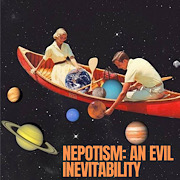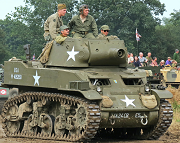|
Jobbo_Fett posted:And/or women! i thought the nazis were really big on not letting women serve
|
|
|
|

|
| # ? May 28, 2024 09:42 |
|
KYOON GRIFFEY JR posted:i thought the nazis were really big on not letting women serve I mean most of the war yes, but they were getting a little desperate by the end. Viz: 
|
|
|
|
KYOON GRIFFEY JR posted:i thought the nazis were really big on not letting women serve https://en.wikipedia.org/wiki/Luftwaffe_personnel_structure#Luftwaffe_Auxiliaries Luftwaffe Auxiliaries Before and during the war, the Wehrmachtgefolge, or the auxiliaries, of the Luftwaffe contained the following categories: Civilian workers and salaried employees of the Luftwaffe, such as air base fire fighters, Fliegerisch tätigen Angestellten der Luftwaffe (aviation employees of the Luftwaffe), and the maritime personnel of the Luftwaffe Seenotdienst. Civilian workers and salaried employees assigned tasks in the Luftwaffe by their employers, such as personnel of the Frontreparaturbetriebe (front repair stations).[38] Civilian employees of contractors performing jobs for the Luftwaffe. Male personnel of the Civil Defense Security and Assistance Service, the Sicherheits- und Hilfsdienst, until the 1942 transfer to the Ordnungspolizei as the Luftschutzpolizei. Male personnel of the air raid warning service, the Luftschutzwarndienst. Female auxiliaries of the Luftwaffe, the Luftwaffenhelferinnen. Flakwehrmänner, that is male workers and salaried employees, either overage or in reserved occupations, who in addition to their regular work manned local anti-aircraft batteries (Heimatflak). Luftwaffenhelfer, 15-17-year-old male high school students and apprentices, who in addition to school or work manned Heimatflak-batteries. Staff and members of detachments from paramilitary organizations attached to the Luftwaffe, such as NSKK-Transportregiment Luftwaffe of the National Socialist Motor Corps, OT-Einsatz Luftwaffe of the Organisation Todt, and TENO-Einsatzgruppe Luftwaffe of the Technische Nothilfe. RAD-Kriegshilfsdienst - female members of the Reichsarbeitsdienst in extended war service, as far as it was fulfilled in attachment to the Luftwaffe
|
|
|
|
how significant are the female components there, though? i only see two categories of women
|
|
|
|
KYOON GRIFFEY JR posted:how significant are the female components there, though? i only see two categories of women Unsure, as there seems to be very little documentation on them. I could check some books when I get home to see if there's anything I might have that could add to it, but I would imagine it was similar in function to how the British employed women in the armed forces, although most certainly to a lesser extent.
|
|
|
|
I assume there's not a lot of difference between a satellite launch vehicle and an ICBM so when Russia or the US want to send up a satellite without triggering global nuclear war, what's the protocol around that?
|
|
|
|
I went to the US National WW2 museum in New Orleans a couple weeks back. It was better when it was just the D-Day museum. It’s very much “yay, America” with little mention of the other allies and drat near zero mention of the USSR. A lot of the exhibits are story time vs unique items you couldn’t see elsewhere. It does a better job than it used to of addressing US racism and internment but those displays are still kind of side notes rather than central to the US soldier/civilian experience. In contrast, the WW1 museum in Kansas City does a way better job of setting the historical/contextual stage leading up to the conflict and focuses heavily on the varied experiences of the major nations’ troops and battles. It’s also chock full of really interesting artifacts and displays. And it disabuses the dumb idea that the US showed up and thus we won.
|
|
|
|
zoux posted:I assume there's not a lot of difference between a satellite launch vehicle and an ICBM so when Russia or the US want to send up a satellite without triggering global nuclear war, what's the protocol around that? No one would bother launching a single ICBM, for one.
|
|
|
|
Kassad posted:No one would bother launching a single ICBM, for one. The Petrov thing was one missile, I think.
|
|
|
|
turns out this thread is not the only people who have had this idea: https://www.newyorker.com/culture/culture-desk/what-happens-when-a-bad-tempered-distractible-doofus-runs-an-empire
|
|
|
|
zoux posted:I assume there's not a lot of difference between a satellite launch vehicle and an ICBM so when Russia or the US want to send up a satellite without triggering global nuclear war, what's the protocol around that? Announcing it way ahead of time.
|
|
|
|
zoux posted:I assume there's not a lot of difference between a satellite launch vehicle and an ICBM so when Russia or the US want to send up a satellite without triggering global nuclear war, what's the protocol around that? The trajectory is usually very different, no? https://allthingsnuclear.org/dwright/trajectory-of-satellite-launch-vs-icbm-launch Fangz fucked around with this message at 18:24 on Jul 18, 2018 |
|
|
|
Kassad posted:No one would bother launching a single ICBM, for one. https://en.wikipedia.org/wiki/Norwegian_rocket_incident
|
|
|
|
mlmp08 posted:I went to the US National WW2 museum in New Orleans a couple weeks back. It was better when it was just the D-Day museum. The Ballistic Missile Launch Notification Agreement was the treaty signed by the US and the USSR, obligating each to notify the other of ICBM and SLBM launches, no less than 24 hours prior; previous bilateral agreements had notification requirements, but there were some loopholes closed by this agreement. The notification requirement was expanded to include space launches in general as part of START I. I don't know if Britain/France/China/India/NK have signed any such binding agreement amongst themselves, but generally everybody announces these things way ahead of times. NK is the outlier I guess.
|
|
|
|
Hmm, this does say that a single ICBM could be launched to mess up defenses with an EMP ahead of the actual attack.
|
|
|
|
mlmp08 posted:I went to the US National WW2 museum in New Orleans a couple weeks back. It was better when it was just the D-Day museum. The WWI/general European warfare exhibit in the Royal Ontario Museum makes no mention of Russia at all. Russia is actually only mentioned once in the entire museum, in the gems and precious metals exhibit.
|
|
|
|
How good is the Imperial War Museum in Britain?
|
|
|
|
Shimrra Jamaane posted:How good is the Imperial War Museum in Britain? Which one ?
|
|
|
|
Shimrra Jamaane posted:How good is the Imperial War Museum in Britain? the one in london is probably my favorite museum in the city
|
|
|
|
Trin Tragula posted:I'd love to have an opinion, but I don't have access to an academic library and I can't afford to pay the cover price, so unless an epub or pdf should happen to fall off a lorry, I'll be over here complaining into a half of mild about how academic publishing is a racket and they should all be taken out and shot... Statement: agreement, I think the rise of pseudo-intellectuals like Jordon Petersen is partially a consequence of gating off all these goddamn papers that functional academics has to write, but nobody gets to read. (Seriously, apparently the average academic paper (not sure if that's specifically in philosophy) has 8 readers Question: what is "half of mild"
|
|
|
|
Nebakenezzer posted:Statement: agreement, I think the rise of pseudo-intellectuals like Jordon Petersen is partially a consequence of gating off all these goddamn papers that functional academics has to write, but nobody gets to read. (Seriously, apparently the average academic paper (not sure if that's specifically in philosophy) has 8 readers doesn't sound like an accurate number to me - I've read at least two orders of magnitude more papers than I've written, and I can't imagine anybody who has read 8 or fewer papers having written one Are you thinking of citations maybe? There's enough heavy focus on citation of Big Important Papers that I could believe that the median number of citations diverges pretty heavily from the mean.
|
|
|
|
HEY GUNS posted:take a pistol up with you, i want to see some balloon-on-balloon action I HAVE SHOCKING INFORMATION RELEVENT TO THIS CONVERSATION Nebakenezzer posted:Cool photo series on observation balloons in World War 1 quote:Every side also used hydrogen balloons for observation on the western front. These were tethered one-man observation platforms, and in something of an irony, were probably the safest aircraft of World War 1. Balloons carried wireless telegraphs, binoculars, and cameras, and could not only observe but correct artillery fire. They were very important, and thus heavily defended. They typically were suspended about a kilometer above the ground, and were guarded by: a heavy anti-aircraft gun presence, other guys in balloons with machine guns, stringing cables in the air with a web of barrage balloons, standing air patrols over the balloons, decoy observer balloons booby-trapped with explosives detonated from the ground, and the explosive nature of a hydrogen balloon itself, especially considering that without incendiary ammo, attacks were only effective at extremely close range. While the war produced ‘balloon-aces’, only the best dared attack. Getting back to safety for a moment, the balloon observer was the only WW1 aviator who had a parachute. WW1 parachutes were bulky, but the balloon could be rigged to assist parachute deployment. I’ve also read that entire baskets were rigged to be detachable, so in the event of an attack, the basket would drop and deploy its own chute. HEY GUNS posted:turns out this thread is not the only people who have had this idea: I can definitely see Trump declaring war on someplace, then issuing specific orders to avoid bombing a Trump affiliated hotel right next to the air defense HQ
|
|
|
|
Nebakenezzer posted:Question: what is "half of mild" A small glass of beer.
|
|
|
|
Tunicate posted:doesn't sound like an accurate number to me - I've read at least two orders of magnitude more papers than I've written, and I can't imagine anybody who has read 8 or fewer papers having written one Not "reads eight papers", "each paper is read by eight people". That sounds low but I can definitely believe it's way lower than you'd assume, especially if we're counting the same paper in different mirrors seperately.
|
|
|
|
Tunicate posted:doesn't sound like an accurate number to me - I've read at least two orders of magnitude more papers than I've written, and I can't imagine anybody who has read 8 or fewer papers having written one Well, I've a friend who through fortune and her enormous work ethic has become a tenured professor of philosophy, and she told me that of every academic (once again, not sure how this is qualified, this might be in the humanities, or philosophy specifically) that on average, every paper published in a journal is read....by eight people She also told me (and I think this is specific to the humanities) that every academic book that is published has an average of 80 readers.
|
|
|
|
Also academic publishing IS a racket. All the fuckin' money goes back to the publisher! When most of the time you have to pay the publisher to get published! The academic publishers themselves are parasites.
|
|
|
|
Shimrra Jamaane posted:How good is the Imperial War Museum in Britain? Really good. Not as good as the British museum but that’s splitting the finest of hairs.
|
|
|
|
Nebakenezzer posted:Well, I've a friend who through fortune and her enormous work ethic has become a tenured professor of philosophy, and she told me that of every academic (once again, not sure how this is qualified, this might be in the humanities, or philosophy specifically) that on average, every paper published in a journal is read....by eight people I do wonder how many of those 'readers' are, y'know, university libraries.
|
|
|
|
Nebakenezzer posted:Well, I've a friend who through fortune and her enormous work ethic has become a tenured professor of philosophy, and she told me that of every academic (once again, not sure how this is qualified, this might be in the humanities, or philosophy specifically) that on average, every paper published in a journal is read....by eight people yeah but all 8 of those people started their own academic journal
|
|
|
|
spectralent posted:Not "reads eight papers", "each paper is read by eight people". They're equivalent statements, though, since we're talking about averages. If each author adds 1 paper and 8 reads to the pool, the average is going to be 8 reads per paper, no matter how they're distributed. EDIT: Found this article from 2010 detailing average number of citations by field vs year published (obviously older papers have more chances to be cited). It might be a bit of a generous assumption, but I think we can assume if someone cites a paper they've read it. https://www.timeshighereducation.com/news/citation-averages-2000-2010-by-fields-and-years/415643.article 
Tunicate fucked around with this message at 22:56 on Jul 18, 2018 |
|
|
|
spectralent posted:Also academic publishing IS a racket. All the fuckin' money goes back to the publisher! When most of the time you have to pay the publisher to get published! The academic publishers themselves are parasites. most journals are nonprofits and run by very few people. the problem isn't the journals themselves, it's that a few consortia like springer have gobbled up most of them
|
|
|
|
Yall see this Zuckerberg poo poo https://mobile.twitter.com/caleweissman/status/1019616055126319105 That led me to this good post for someone who might not be familiar with the tactics and goals of deniers, like me https://mobile.twitter.com/askhistorians/status/788364022793981955?lang=en Where Zuck's wrong is that they absolutely are intentionally getting it wrong
|
|
|
|
Shimrra Jamaane posted:It’s just astounding that a nation could lose 27,000 dead in one day and not only not immediately fall apart but gear up to fight harder and longer. People discussed this question already, but is it possible that, culturally, the tragedies of WWI and WWII exhausted the moral capacity of European populations to tolerate mass death on that scale? This is probably an obscure enough notion as to be unfalsifiable, but it's not without precedent. After the horrific European wars of religion during the 16th and 17th centuries, they seem to have arrived at a kind of consensus to stop doing wars of religion, or wars that occasioned massive civilian death in general. They also adopted radical reforms to the diplomatic and political structure of the whole continent designed to prevent such conflicts from happening again, like the concept of Westphalian Sovereignty. After WWII we also got the frameworks of international law, human rights, and the UN, which were all devised mostly to prevent aggressive war. oXDemosthenesXo posted:Is U.S. Grant's memoirs worth reading? I came across an 1885 copy a family member has but it looks long and dense. I also want to jump in on this even though it is from days ago, because I read that book pretty recently. My review is that it is very good and you should read it. If you're worried about the length and exhaustive detail, it's easy to skip around because the memoir proceeds chronologically and is broken up into chapters around specific important events. The quality of Grant's writing is of particular interest. His voice and phlegmatic personality come through really clearly, he has a superb memory and attention to detail, and his descriptions of terrain, tactics, logistics, strategic concerns, etc. are all easily understandable and vivid. Grant's memoirs actually have a certain importance in American literary history because they sort of established a distinctive "American" style of prose. At the time, the literary fashion was to have very long, complicated, winding compound sentences. Grant's prose is very simple, direct, and lucid. The enormous success of the book influenced American literary culture such that his style of direct no-frills prose became a standard for American writing.
|
|
|
|
Schenck v. U.S. posted:They also adopted radical reforms to the diplomatic and political structure of the whole continent designed to prevent such conflicts from happening again, like the concept of Westphalian Sovereignty. Edit: The idea that the 18th century was an age of limited war is an old one and it's held by many historians. I used to hold it myself. For a relatively famous example see The First Total War by David Bell. But statistical research from the British Isles seems to show that the UK's monetary outlay on war ramped up steadily during the 18th century and that it was a massive commitment even then. Statistical research from the Austro-Hungarian Empire seems to show that they had large-scale conscription during the 18th century as well, not just during the 19th. I no longer believe that 18th century war was "limited" and 17th or 19th century war was "total." I may be in the minority here. HEY GUNS fucked around with this message at 00:38 on Jul 19, 2018 |
|
|
|
feedmegin posted:I mean most of the war yes, but they were getting a little desperate by the end. Viz: gently caress I hate when some nazi hands me a panzerfaust while I'm out getting groceries
|
|
|
|
HEY GUNS posted:Another war--another series of bad wars--started up again six years later and lasted until the beginning of the 18th century. Poland-Lithuania collapsed in it. Many 30yw generals fought in it. So did a number of polities in the Germanosphere. Meanwhile a war that Spain and France started in the 1630s kept going until 51, like another 30yw nobody's ever heard of. "The Westphalian System" is overrated as a description of what was going on in the latter half of the 17th c. The Deluge did pop up in my mind as an obvious counter-example. How many of the people in Poland-Lithuania died in that one? 1/4 to 1/3? I'm having a harder time finding information on civilian casualties in the Franco-Spanish War around the same time. The way I wrote that might have implied that there was a kind of sudden decision, like they just all shook hands and quit having brutal wars after 1648. I meant something more like a gradual transition into 18th and 19th century wars where relatively fewer civilians were massacred. Like, I think "only" 700,000 people died in the War of Spanish succession. And of course, there are other explanations. It might be that changes in technology, especially better logistics, harder fortifications, the greater difficulty of taking populated places, and the slowing-down of the operational tempo generally made it easier for civilians to escape being killed wantonly. Flipping things around is another important thing. Americans were very unhappy about their 60,000 dead in Vietnam but usually don't spare much thought for the 1 or 2 million Vietnamese.
|
|
|
|
Schenck v. U.S. posted:...better logistics...
|
|
|
|
Schenck v. U.S. posted:The way I wrote that might have implied that there was a kind of sudden decision, like they just all shook hands
|
|
|
|
HEY GUNS posted:Edit: The idea that the 18th century was an age of limited war is an old one and it's held by many historians. I used to hold it myself. For a relatively famous example see The First Total War by David Bell. But statistical research from the British Isles seems to show that the UK's monetary outlay on war ramped up steadily during the 18th century and that it was a massive commitment even then. Statistical research from the Austro-Hungarian Empire seems to show that they had large-scale conscription during the 18th century as well, not just during the 19th. I no longer believe that 18th century war was "limited" and 17th or 19th century war was "total." I may be in the minority here. This is another thing that I think is really interesting but unfortunately limited to speculation. What if the 18th century has a reputation for limited wars because states designed and built extensive networks of fortifications, and organized better systems to conscript and finance their armies, specifically because they feared what happens when there was no frontier to be held, like in the 30YW or the Deluge? Austria organized pretty much all of Croatia as a military frontier against the Ottomans from 1550 to 1880, like a throwback to the medieval march.
|
|
|
|

|
| # ? May 28, 2024 09:42 |
|
Jobbo_Fett posted:That's pretty impressive, considering thats at least five times the number of 88mm guns ever produced. Very carefully
|
|
|
















 Yes, it's like a lava lamp.
Yes, it's like a lava lamp.
















